The day I became Anna
Indian citizens dissatisfied with poor governance and corrupt dynastic regimes have taken to a traditional Gandhian method: non-violent protests.
Indian citizens dissatisfied with poor governance and corrupt dynastic regimes have taken to a traditional Gandhian method: non-violent protests.
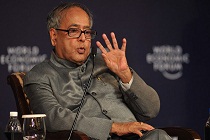 Courtesy: WorldEconomicForum/WikimediaCommons
Courtesy: WorldEconomicForum/WikimediaCommons
While the U.S. political leadership is stuck with extreme positions led by the Tea Party, India’s politicians do not seem to have a position at all. It is imperative for India’s political leadership to exercise prudent fiscal leadership to ensure that economic growth is balanced and equitable.
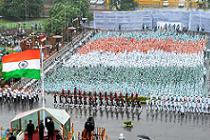 Courtesy: PIB
Courtesy: PIB
India’s 64th Independence day is the unhappiest, as it is confronted by corruption, governance and a host of other national and state issues. The lack of attention to our selves has made us less loveable to others.
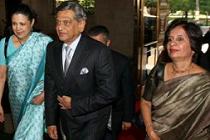 Courtesy: EmbassyofIndia,WashingtonDC
Courtesy: EmbassyofIndia,WashingtonDC
The job of forging partnerships while sustaining India’s interests is done by its ambassadors –and New Delhi has the unique distinction of sending two women ambassadors in a row to the US. A study of Indian envoy Meera Shankar’s tenure, and what awaits her successor –and former foreign secretary–Nirupama Rao.
This decade records a new trend for the Indian Diaspora: as the Indian economy registers strong growth, thousands return to India amidst growing employment and investment opportunities. But does India have the ability to effectively reintegrate them into society?
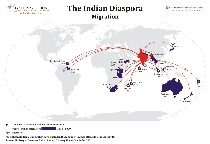 Courtesy: Gateway House
Courtesy: Gateway House
This decade records a new trend for the Indian Diaspora: as the Indian economy registers strong growth, thousands return to India amidst growing employment and investment opportunities. But does India have the ability to effectively reintegrate them into society?
As India's engagement with countries in China's periphery increases, fora like the Shanghai Cooperation Organisation, spear-headed by China, have also cropped up. Gateway House's Madhura Joshi speaks to former Ambassador Vinod C. Khanna, to understand the Indo-Chinese paradigm and examine current policies.
 Courtesy: Pragati
Courtesy: Pragati
Both Tokyo and New Delhi see each other as reliable partners, and continue to do so after the Japanese earthquake and nuclear disaster. The Japan-India relations in the post-disaster environment must be understood in terms of humanitarian, economic and strategic dimensions.

While India’s foreign policy has gone a long way in earning global goodwill, there remains a vital element in its periphery that is absent from its diplomatic reach: Indian business. What can be done to bridge this gap between India’s foreign policy-makers and its business leaders?
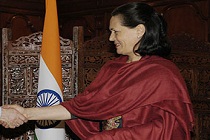 Courtesy: Yann/WikimediaCommons
Courtesy: Yann/WikimediaCommons
As Sonia Gandhi receives medical treatment in the U.S., foreign - and not Indian - media reported about the leader of the Congress Party. Can Indians hope that the party will have the maturity to elect one from amongst itself or will the limp Indian opposition cohere into a credible force?